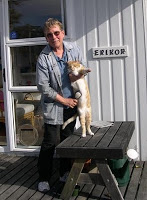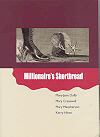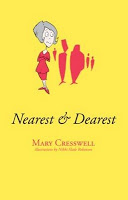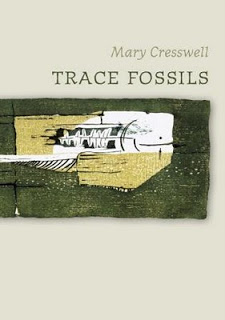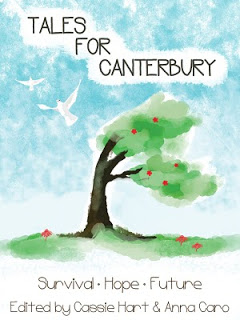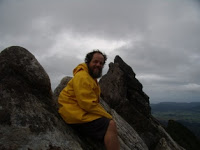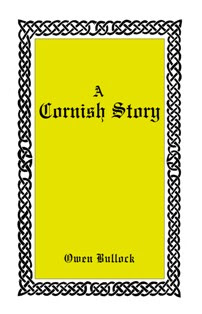Mary Cresswell is a Wellington poet who lives on the Kapiti Coast. She came to New Zealand from Los Angeles in 1970, after having lived in various parts of the US, in Germany, and in Japan. She graduated from Stanford University in California with a degree in history and English literature. She is retired from freelance work (science editor and proofreader) and has spent at least one lifetime in the Wellington workplace.
Her first book appearance was with Mary-Jane Duffy, Mary Macpherson, and Kerry Hines, co-authors of Millionaire’s Shortbread (University of Otago Press, 2003). This book is illustrated with collages by Brendan O’Brien, has an afterword by Greg O’Brien, and introduced these four poets to the Wellington scene.
Nearest & Dearest, Mary’s collection of her parody and satiric verse, was published in 2009 by Steele Roberts and is illustrated with cartoons by Nikki Slade Robinson. At that time I interviewed her for the first time.
This is a first for me, Mary – a re-interview, and it indicates that you’ve had success in getting two books published in relatively close succession. Before we get onto your new poetry collection, Trace Fossils, how did things go with your 2009 collection, Nearest & Dearest? Collections of light poetry are still quite rare in New Zealand – do you think that this affected the critical and popular reception of Nearest & Dearest, for either good or ill?
There was no critical notice in NZ, which didn’t surprise me. In the US, I got a very good notice in the well-established print journal Light Quarterly, but the US has a lot of humour written by women – not just Dorothy Parker years ago but many women today. I fondly remember Hen’s Teeth, Crow Station, and lots of good women stand-up comics, but NZ seems to me to have handed written satire and parody over to the boys. (If anyone can tell me otherwise, please get in touch!!)
The publisher and I sold just under 150 copies between us. Most of my sales, many of them multiple copies, were to groups of women who would never browse poetry shelves but who were pleasantly astonished that reading poems could be fun. … On the other hand, I was surprised by a number of people who were nonplussed (embarrassed?) by the contents, didn’t know what to say. Perhaps they had no experience of responding to satire or to sarky women fronting up in print.
Trace Fossils was first runner-up for the Kathleen Grattan Awards in 2009, judged by Fleur Adcock – a notable achievement! Is the published version of the manuscript the same as that submitted for the Kathleen Grattan Awards, or has it changed since then?
It’s exactly the same. The manuscript wandered around some years before that. One reason I am so very glad to see it in print now is that I am starting to have trouble recognising the author – and I’m extremely happy to be on the receiving end of Steele Roberts’ very attractive design and presentation.
Trace Fossils is divided into four sections of roughly equal length. What is the significance of these four sections within the collection? Were most of the poems written with an eye to this particular collection, or did the shape of the collection derive from the type of poems that you had been writing?
The section names are intended to be vaguely geological and to suggest eras, different from each other and long in time. Trace fossils themselves may or may not represent anything, and they are a geological construct, a fascinating one (they also have a very funny classification system – take a look). In the introduction, I nominate trace fossils as a metaphor for our memories of loss and our ways of observing loss.
The poems themselves were written at various times and in various forms: counted syllables, sonnets, prose poems, ghazals, concrete poems, ovillejo, accentual poems, free verse in a variety of lengths and shapes. I assembled them more with an eye to connection than to form; they were none of them written with a particular book in mind.
I spent some time recently talking with a fellow poet about the marketing and distribution of poetry collections – that is, letting people know about new poetry collections, and getting poetry collections to places, whether physical or virtual, that people can buy the books if they wish. I imagine the poets reading this interview, at least, would love to know whether you have any innovative ideas on either of those topics!
I wish. Virtual: I have no clue. Finding more about this side of things is my next project. Physical: The books I have sold were sold by word of mouth – people rang me. Local museums, educational groups and art galleries are sometimes prepared to handle books by local authors, especially if the books can be tied in with current shows, if you do the record-keeping and paperwork, and if you are prepared to donate some of your profit to the organisation. (And if you accept it as a one-off, not a continuing relationship.) I suspect special-interest groups, like writing classes, might be worth trying if you’re prepared to give a reading. I expect any reading is a place to sell books.
Do you have any poetry readings planned around the publication of Trace Fossils – and if so, where can people hear you read?
No, no readings. As you know, there are poets who perform with panache and poets who potter on paper. There is a lot of overlap, I’m glad to say, but I generally prefer not to do solo readings. The main reason for this is that a lot of my poetry is based on word play (both visual and syntactic) and shifts of register. I think that much of this goes west when people hear the poems read out loud and only once. I write page poetry that is to be looked at and re-read. I wish I could bounce and rap, but I can’t.
If you don’t mind me asking, what projects are you working on now?
No, I don’t mind, but there’s nothing all that coherent. It’s been years since I finished the poems included in Trace Fossils, and I have shifted more and more to formal patterns, particularly ghazals (at the moment) but also other repeating structures. I enjoy working in accentual (as opposed to accentual-syllabic) forms. Somewhere down the line I would like to end up with a book built on a skeleton of ghazals but fleshed out with a variety of other poems. I’m still writing light verse and publishing it in the US and the UK, but as always this is a separate department. My main immediate project will be trying to get my head around what might be useful in the world of e-publishing.
Book Availability
Trace Fossils can be ordered from the publisher, Steele Roberts, and is available at independent bookshops.
Nearest & Dearest can also be ordered from Steele Roberts.
Sample Poem
I published Mary’s poem “The Sound Of Now” as my Tuesday Poem this week – check it out!
